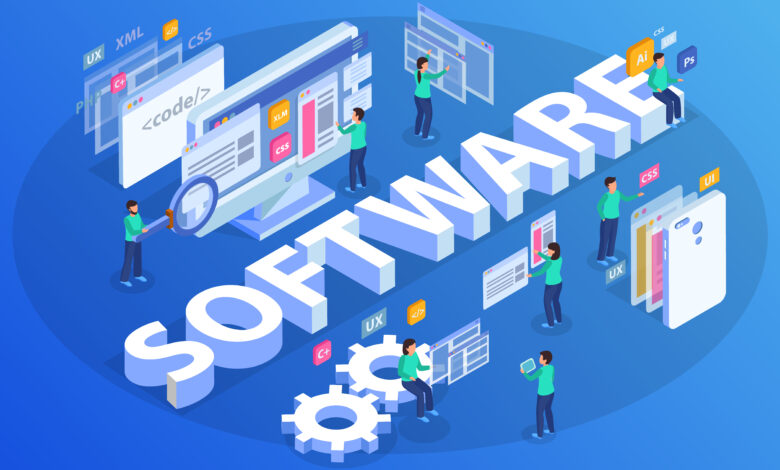
Introduction
In the fast-paced world of technology, finding a software developer job can be both exciting and challenging. With the continuous growth of the tech industry, the demand for skilled developers is at an all-time high. However, the competition is fierce, and landing your dream job requires more than technical expertise. This guide will explore various strategies, tools, and tips to help you secure a software developer position that aligns with your skills and career goals.
Best Accounting Software for Freelancers: A Detailed Guide
Understanding the Software Developer Job Market
The software development industry is evolving rapidly, with new technologies and methodologies emerging regularly. This dynamic environment creates a high demand for developers, but it also means job seekers must stay updated with the latest trends and skills. Understanding the current job market is crucial whether you are a recent graduate or an experienced professional.
Software Development Tools in the USA
Key Trends in the Job Market
- Remote Work: The rise of remote work has opened up opportunities for developers worldwide. Companies are no longer confined to hiring locally, so you can apply for jobs globally. However, this also means competition has increased, as you now compete with developers worldwide.
- Specialization: While being a generalist has advantages, specialization in specific technologies or frameworks can make you more attractive to employers. For example, cloud computing, artificial intelligence, or cybersecurity expertise can set you apart from other candidates.
- Continuous Learning: The tech industry values continuous learning. Staying updated with the latest programming languages, tools, and best practices is essential. Employers look for candidates who demonstrate a commitment to professional growth.
Crafting an Effective Resume and Portfolio
Your resume and portfolio are your first impression to potential employers. They should showcase your skills, experience, and the value you can bring to a company. Here’s how to create a resume and portfolio that stand out:
Resume Tips
- Use Actionable Keywords: Incorporate relevant keywords such as “software development,” “programming languages,” and “technical skills” throughout your resume. These keywords will help your resume pass through Applicant Tracking Systems (ATS) and reach the hiring manager.
- Tailor Your Resume for Each Job: Customize your resume for each job application. Highlight the skills and experiences that are most relevant to the job description.
- Showcase Achievements: Instead of listing job responsibilities, focus on your achievements. Quantify your contributions with metrics such as “improved application performance by 30%” or “reduced development time by 20%.”
- Include Certifications: Certifications from reputable organizations, such as AWS Certified Developer or Microsoft Certified: Azure Developer Associate, can boost your resume.
Portfolio Tips
- Highlight Relevant Projects: Your portfolio should showcase projects demonstrating your expertise in the areas relevant to the job you’re applying for. Include a mix of personal projects, open-source contributions, and work for previous employers.
- Provide Detailed Case Studies: For each project, include a detailed case study that explains the problem you solved, the technologies you used, and the impact of your work.
- Use a Clean, Professional Design: Your portfolio should be easy to navigate and visually appealing. Use a clean, professional design that highlights your work without being too flashy.
- Include Code Samples: Include links to your GitHub or other code repositories. Employers appreciate seeing clean, well-documented code.
Networking and Building Connections
Networking is a powerful tool in your job search. Many jobs are filled through referrals, so building a solid professional network can increase your chances of landing a job.
Tips for Effective Networking
- Attend Industry Events: Attend conferences, webinars, and meetups related to software development. These events provide opportunities to meet industry professionals, learn about the latest trends, and discover job openings.
- Join Online Communities: Participate in online communities like GitHub, Stack Overflow, and Reddit. Engage in discussions, contribute to open-source projects, and connect with other developers.
- Leverage LinkedIn: Optimize your LinkedIn profile to showcase your skills and experience. Connect with industry professionals, join relevant groups, and engage with content related to software development.
- Seek Out Mentorship: A mentor can provide valuable guidance and connections in the industry. Feel free to reach out to experienced professionals for advice and mentorship.
Preparing for Technical Interviews
Technical interviews are a critical part of the hiring process for software developers. Preparing thoroughly can help you stand out in this competitive stage.
Common Interview Formats
- Coding Challenges: These are designed to test your problem-solving skills and knowledge of algorithms and data structures—practice coding challenges on platforms like LeetCode, HackerRank, and Codewars.
- System Design Interviews assess your ability to design scalable and efficient systems. Familiarize yourself with common design patterns and principles.
- Behavioural Interviews: Employers want to assess your fit within the company culture. Prepare to discuss your previous work experiences, challenges, and what you’ve handled.
Tips for Acing Technical Interviews
- Practice Regularly: Consistent practice is critical to success. Dedicate time each day to solving coding challenges and reviewing system design concepts.
- Understand the Problem: Before jumping into coding, take the time to understand the problem entirely. Clarify any ambiguities with the interviewer.
- Communicate Clearly: During the interview, explain your thought process clearly. This helps the interviewer understand your approach and reasoning.
- Review Your Work: After completing the coding challenge, review your work for any errors or optimizations. This shows attention to detail.
Job Search Strategies
Finding a software developer job requires a multi-faceted approach. Here are some strategies to help you in your job search:
- Utilize Job Boards and Websites
- General Job Boards: Websites like Indeed, Glassdoor, and LinkedIn are great places to start your job search. Use filters to narrow your search by location, job type, and experience level.
- Tech-Specific Job Boards: Websites like Stack Overflow Jobs, GitHub Jobs, and AngelList focus specifically on tech jobs. These platforms often feature job listings from startups and tech companies seeking specialized skills.
- Apply Directly on Company Websites
Many companies post job openings on their official websites before listing them on job boards. Regularly check the careers page of companies you’re interested in working for. If you don’t see a position that matches your skills, consider sending a speculative application. This shows initiative and interest in the company.
- Work with Recruiters
Recruiters can be a valuable resource in your job search. They have access to unlisted job openings and can provide insights into what employers seek. Make sure to choose a recruiter who specializes in software development roles.
- Leverage Your Network
As mentioned earlier, networking is crucial. Let your connections know that you’re looking for a job. They can refer you to opportunities within their organizations.
Continuous Learning and Skill Development
The tech industry constantly evolves; continuous learning is essential for staying relevant. Here are some ways to keep your skills sharp:
- Online Courses and Certifications
Platforms like Coursera, Udemy, and edX offer courses on various programming languages, tools, and methodologies. Earning certifications can also make you more attractive to employers.
- Contribute to Open Source Projects
Contributing to open-source projects is a great way to gain experience, build your portfolio, and network with other developers. It also shows potential employers that you’re passionate about coding.
- Stay Updated with Industry News
Follow tech blogs, podcasts, and news websites to stay informed about the latest trends and technologies in the industry. This knowledge can help you in interviews and make you a more informed developer.
- Join a Coding Bootcamp
If you want to learn a new programming language or framework quickly, consider joining a coding boot camp. These intensive programs are designed to teach you the skills needed to land a job in software development.
Final Thoughts
Finding a software developer job requires technical skills, networking, and strategic job searching. Following the tips and strategies outlined in this guide, you’ll be on your way to landing your dream job in the tech industry.
Remember to stay patient and persistent. The job search process can be challenging, but with the right approach, you’ll find ayou’llion that aligns with your career goals and aspirations.
Frequently Asked Questions (FAQs)
Q: How long does it take to find a software developer job?
A: The time it takes to find a software developer job varies depending on your experience, the job market, and the strategies you use in your job search. It can take anywhere from a few weeks to several months.
Q: Do I need a degree to become a software developer?
A: While a degree in computer science or a related field can be beneficial, it can sometimes be optional. Many employers value skills and experience over formal education. Online courses, coding boot camps, and self-study can also prepare you for a career in software development.
Q: What programming languages should I learn?
A: The programming languages you should learn to depend on the type of development you’re interested in. JavaScript, HTML, and CSS are essential for web development. For mobile development, consider learning Swift or Kotlin. Python, Java, and C++ are also widely used in various domains.
Q: How can I improve my chances of getting hired?
A: To improve your chances of getting hired, focus on building a solid portfolio, networking with industry professionals, and continuously learning new skills. Tailor your resume and cover letter for each job application, and prepare thoroughly for technical interviews.
Q: Should I apply for jobs even if I don’t meet don’t requirements?
A: You should apply for jobs even if you don’t meet the requirements. Employers often list their ideal candidate’s candidates, but they may be willing to consider candidates who meet most requirements and show growth potential.
This article can be published under the “Career Development” or “Software” Eng “sneering” category. T “The content includes practical advice and strategies for finding a software developer job, making it relevant to those seeking guidance in their career path.





